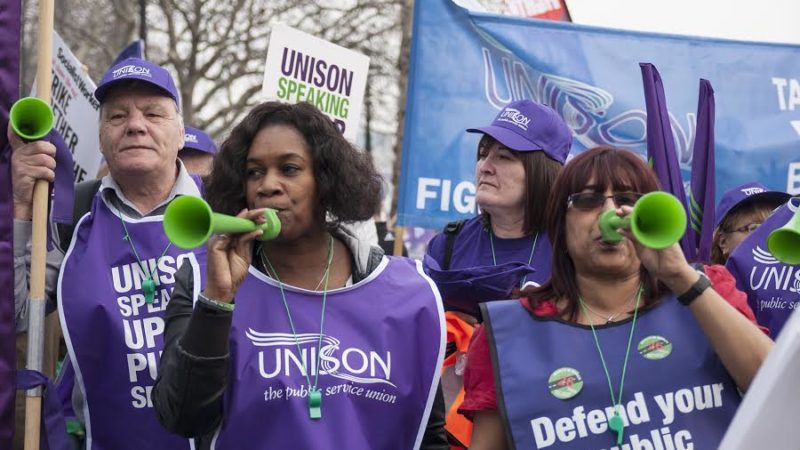
It’s general secretary election time at UNISON, the UK’s largest trade union. As a member, ex-shop steward, one time learning rep, and now employee, this contest feels like the most important in my working life. The union has held up well during recent years. We have returned to membership growth (even through the pandemic) and continued to secure important industrial and landmark legal victories. But make no mistake, the challenges faced by the union are profound.
These include the huge conundrum of how to provide first-class representation to members in increasingly fragmented workplaces where union density is often low and there are few reps; the difficulty of overcoming the demographic time bomb that will see a huge chunk of our membership retire in the coming years; and addressing the need to remain authentic and relevant as a campaign and political force for a diverse working population across the UK who are sceptical about the union role in politics.
I could go on, but you get the picture. If these challenges have a familiar ring to them, that’s because in some respects they are the challenges unions have faced anew in every generation, now rendered daunting by the very different social, economic and cultural context in which we operate. It is a world in which people at work in public services are less likely than they were 25 years ago to be members of a union and have access to a work rep but, due to low/falling pay, precarious employment, etc, more likely than ever to need the services of an effective trade union.
We need a fundamental rethink about how we do things. And ultimately some difficult decisions will need to be taken about, for example, increasing subscription rates, allocation of resources and the way that the union is structured. In an ideal world, those vying to be general secretary should be able to reflect and offer not just headline pledges, but also their analysis of what and how the union should deliver in a changing world and how their pledges will be make a difference.
This isn’t however, an ideal world. Turnout in general secretary elections is typically very low. Less than 10% of members voted in 2015. Coupled with the requirement for candidates to secure branch nominations to get on the ballot paper, low turnout can skew the contest to activist priorities and left versus right X Factor trade union populism. Not only does this risk detracting from a relentless focus on how we deliver for ordinary members. It also carries within it an insidious conservatism, whereby change is offered, but it is ultimately variations of the same way we’ve always done things. Difficult trade-offs aren’t discussed, which in turn risks a weaker mandate to make difficult choices for whoever wins.
A plea to fellow members, the union’s ruling lay members on the national executive council and the candidates: let’s really try to widen the debate this time. Four things could make a difference. First, as a union let’s do more to boost turnout. The union goes to significant lengths to ensure high participation levels. We know it isn’t easy, but given the high stakes it is surely worth a fresh look. Secondly, branches could do more to promote engagement at their virtual nomination meetings, encouraging participation by those who don’t, in ordinary times, attend.
Third, the union nationally should hold some digital filmed interviews that scrutinise the candidates. These could be informed by some member polling, facilitating a process aimed at focusing candidates on what they can do to address ordinary member priorities. Finally, let’s prevail upon all the candidates and their supporters to conduct the campaign in a way that is honest, transparent, open to all voices and positive. This is a hugely significant election. The candidates need to do it justice.
Saying the stakes could not be higher is a cliché. But it is true – not just for UNISON but the wider union movement, too. When interviewing John Monks a few years back for a Unions 21 research paper, I asked him about the new unionism initiative of the 1990s. Although not without its detractors, new unionism was the last time we saw a movement-wide programme aimed at addressing systemic decline. I was keen to know what he saw as the magic ingredients for getting such an initiative off the ground. The key, he said, was ensuring you have two or three major general secretaries on your side.
With the Unite and the GMB general secretary elections following hot on the heels of UNISON, planets might be aligning for some much-needed creativity and innovation, not just in UNISON but in the wider movement. UNISON has always been a leader. Let’s hope this contest enables a new general secretary to take office with the qualities and instincts that enable UNISON and trade unionism to flourish.
David Arnold is writing in a personal capacity.




More from LabourList
‘Labour council candidates – it’s tough, but all is not lost’
‘Labour won’t stop the far right by changing leaders — only by proving what the left can deliver’
‘Cutting Welsh university funding would be economic vandalism, not reform’